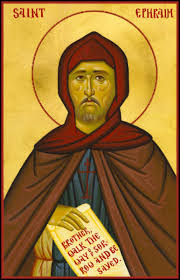HOMILY WEEK 10 03 – Year I
Ministers of a New Covenant:
(2 Cor 3:4-11; Ps 99; Matt 5:17-19)
**************************************
Would you like to be given new, very important role in your life?
You already have one – just believe it and be ministers of a new covenant.
Those who are married will perhaps understand this message more easily. Marriage, after all, is not a contract nor simply an agreement. It is an intimate lifelong bond or unbreakable relationship reflecting God’s desired relationship with us.
That is why throughout salvation history God has always entered into a covenant relationship with God’s people, beginning with Adam and Eve, a human couple. Then came the covenant with a family, Noah, followed by that with a tribe, Abraham and Sarai. That led up to the pivotal covenant with a nation, Moses at Mt. Sinai, that was to transform that ragged band of Israelites into a holy nation tasked with attracting all nations back to God.
History shows that they were never faithful to the covenants, so finally God entered into a new covenant with King David that was different – that was based not on the law but on unconditional love. God would be with King David no matter what he did, even lust, adultery and murder. King David repented, experienced God’s unconditional love as forgiveness, and was transformed into the only true king Israel ever had.
That covenant, however, was only a shadow of the covenant God would finally bring about through the sacrifice of Jesus on the Cross, revealing to the world who God really was: totally non-violent, unconditional love, mercy, humility, compassion and forgiveness.
It is this covenant that St Paul in the first reading takes great pains to explain to us. The Mosaic covenant, glorious as it was, could only convict us of sin, not forgive nor transform us. It was a conditional covenant based on law and to be carried out through human effort. Paul calls it a ministry of death; a letter that kills; the ministry of condemnation. The new covenant, on the other hand, is based on love, to be lived out by the power of the Holy Spirit. It is one that gives life, that justifies us, and fills us with genuine glory.
In the Gospel, Jesus states he did not come to abolish the law, but to fulfill it, and fulfill it he did, with his life of love and mercy, and his total obedience to the will of the Father, even at the cost of his life on the cross.
St Paul tells us the Spirit of the Risen Lord has now made us competent to be ministers of this new covenant. That ministry is very simple, according to Jesus. All we have to do is to keep and teach his commandments. That is, we are to love God with our whole being, and love others as we love ourselves. We are to love one another as he has loved us, and finally, we are to love our enemies, forgiving them and even doing good to them. Then we will truly be ministers of the new covenant, and not only that, we will be already living in the kingdom of God, and will be called great in the kingdom of heaven.
 Today the Church invites us to honour St. Ephrem, who lived from about 306 to 373. Born in Mesopotamia, Ephrem was baptized at 18 and eventually became a deacon, but humbly refused ordination to the priesthood. After the fall of his home city to the Persians in 363, Ephrem retired to a life of solitude in a cave to write commentaries and hymns. Recognizing the power of music and poetry to evangelize, he was the first to introduce hymns into public worship. Called “The Harp of the Holy Spirit,” he died at Edessa on June 9th. In 1920, he was declared a Doctor of the Church.
Today the Church invites us to honour St. Ephrem, who lived from about 306 to 373. Born in Mesopotamia, Ephrem was baptized at 18 and eventually became a deacon, but humbly refused ordination to the priesthood. After the fall of his home city to the Persians in 363, Ephrem retired to a life of solitude in a cave to write commentaries and hymns. Recognizing the power of music and poetry to evangelize, he was the first to introduce hymns into public worship. Called “The Harp of the Holy Spirit,” he died at Edessa on June 9th. In 1920, he was declared a Doctor of the Church.
Truly the liturgy with its readings is one that gives us great dignity and worth – to be ministers of the new covenant. May this Eucharist empower us to be just that.



